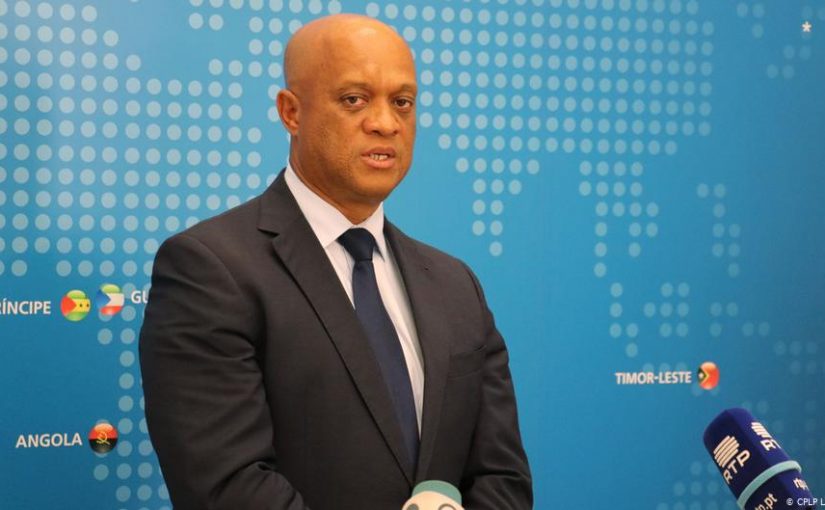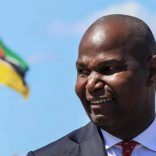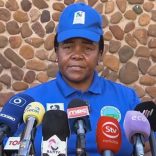Mozambique has the highest road accident rates in Southern Africa - Minister
CPLP: Meeting to discuss Cabo Delgado, cooperation in emergencies

FILE - Cabo Verde's minister for foreign affairs and communities, Luís Filipe Tavares, president-in-office of the CPLP. [File photo: DW]
The Community of Portuguese Language Countries (CPLP) is meeting on Wednesday by video conference to analyse, among other issues, the violence in the Mozambican province of Cabo Delgado and to approve a resolution on cooperation in times of emergency.
The theme of this, the first council of ministers meeting after the outbreak of the pandemic, is precisely the “Reaffirmation of Cooperation in the CPLP in the context of the Covid-19 pandemic”, according to the agenda note.
In an invitation to his counterparts, Cabo Verde’s minister for foreign affairs and communities, Luís Filipe Tavares, as president-in-office of the CPLP, stressed: “The emergency experienced at the world level requires from us permanent cooperation, solidarity and consultation.”
Concerning the resolution on cooperation in emergencies that may come out the meeting, the Cabo Verde ambassador to Portugal explained that the goal is that the various areas of the focal points, that of internal administration, health and civil protection should draw up a reference document for cooperation in times of emergency, which should be presented by July 2021, to go to the approval of the extraordinary meeting which will precede the Summit of Heads of State and government, scheduled for July.
“In essence, it is to give a mandate to these technical cooperation groups of the various ministries,” the diplomat explained in statements to Lusa, in anticipation of the meeting.
This meeting of the heads of CPLP diplomacy may issue a statement about Cabo Delgado condemning the attacks and also of solidarity with Mozambique, one of the nine Member States of the Portuguese-language community, the organisation’s executive secretary, Francisco Ribeiro Telles, told Lusa.
This should be the first time that the CPLP will make a public and formal statement on the attacks and violence affecting Cabo Delgado province in northern Mozambique.
In addition to these matters, the meeting should also approve a resolution on mobility establishing a time limit for the implementation of a final text on the free movement of people within the community, a complex dossier to which the Presidency-in-Office has been committed, even because it has taken it as one of its flags.
Speaking to Lusa, the Cape Verdean diplomat said that at the meeting what ministers are asked is only to validate the work done so far by the joint technical commission, approve what are the structuring principles, and determine the idea that this matter is closed in the first quarter of 2021, with a technical meeting to finalise the text.
The joint technical committee on mobility already has almost 95% of the work done. Therefore, there is a lack of 5% of matters that can be understood among the various states, which are not delicate. But these are matters where there are sometimes interests in one sense or another of the member states.
After the ministerial political debate, the executive secretary of the CPLP, Francisco Ribeiro Telles, and the executive director of the International Portuguese Language Institute (IILP), Incanha Intumbo, will present their annual reports, followed by the election of the IILP executive director for the 2021-2022 biennium.
According to Ambassador Eurico Monteiro, this is the renewal, for a further two years, of the mandate of the current director, Incanha Intumbo.
Also, the budgets for the executive secretariat and the IILP will be approved for next year, both with zero growth, Eurico Monteiro stressed.
One of the subjects that will not be at today’s meeting is the new programme to support Equatorial Guinea’s integration into the CPLP, which is still being negotiated, Eurico Monteiro confirmed.
The cabinet meeting is composed of the ministers of foreign affairs and external relations of the nine member states of the CPLP.
The CPLP includes Angola, Brazil, Cabo Verde, Guinea-Bissau, Equatorial Guinea, Mozambique, Portugal, Sao Tome and Principe and East Timor.













Leave a Reply
Be the First to Comment!
You must be logged in to post a comment.
You must be logged in to post a comment.